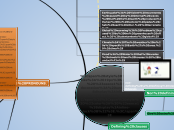da Andrea Blázquez mancano 11 anni
932
UNIT 5.
Relative clauses are used to provide additional information about nouns in a sentence and are categorized into defining and non-defining clauses. Defining clauses are essential to the meaning of the sentence and do not require commas, while non-defining clauses offer extra details and are set off by commas.









